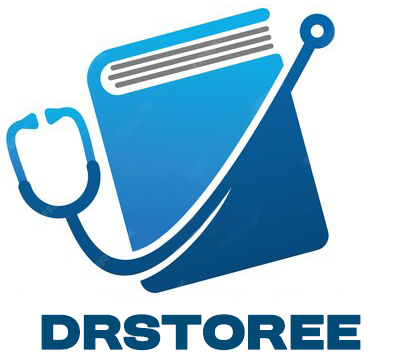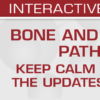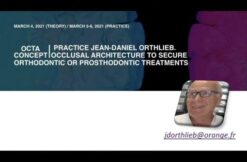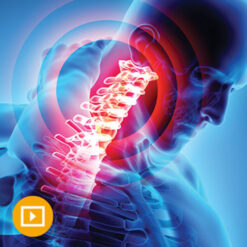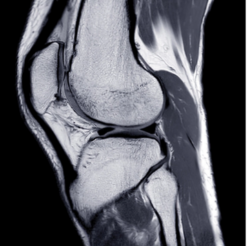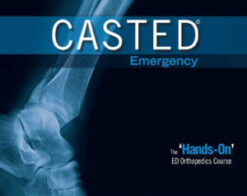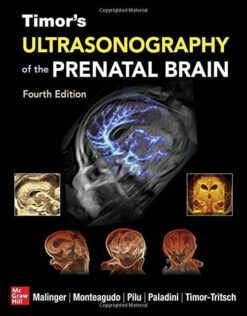Harvard Movement Disorders – Current Concepts and Practice 2024
$75.00
This Product is shared via google drive download link, So please share your correct Gmail id while placing the order .Please note that there are no CME points or certificate associated with this course Samples for Courses Can be found here : Free Samples Here!
Format :47 MP4 + 1 PDF Files
File Size : 24.79 GB
2024 Course Overview
Harvard Movement Disorders – Current Concepts and Practice 2024 The goal of this course is to improve the ability of clinicians in primary care, neurology, and psychiatry to recognize clinical features of common and uncommon movement disorders, use testing to aid diagnosis, and manage complications of both disease and treatment. The evaluation and management of movement disorders depends upon targeted, historical assessment and physical examination of the patient. Conditions, such as essential tremor and Parkinson’s disease, are common and can produce significant disability and disease burden on patients and their caregivers.
Though Parkinson’s disease and essential tremor are two well-known disorders commonly encountered by the general practitioner and neurologist, a considerable percentage of cases are misdiagnosed. In addition, other highly treatable disorders, such as drug-induced movement disorders, dystonia, and tics can be difficult to recognize which can pose an obstacle to initiating proper treatment. There have been considerable advances in our understanding of certain complex movement disorders, such as Parkinson’s disease. We will also focus attention on non-motor aspects of Parkinson’s disease, which are increasingly being recognized as important determinants of quality of life.
The course will cover current concepts on pathophysiology of the various movement disorders, evidence-based evaluation and treatment recommendations, clinical practice guidelines as well as experience-based recommendations. Numerous patient videos will be shown throughout the presentations. Finally, the course will culminate with interactive discussion of video-based case examples
Learning Objectives
Upon completion of this activity, participants will be able to:
- Evaluate and diagnose movement disorders, such as Parkinson’s disease, Huntington’s disease, dystonia, tremor, myoclonus, tics, gait disturbances, chorea, tardive dyskinesia, and other disorders of the basal ganglia, in different settings (emergency, inpatient, and outpatient).
- Summarize treatment options and considerations in the management of movement disorders.
- Recognize pitfalls in making an erroneous diagnosis in Parkinson’s disease, tremor or dystonia.
- Describe the pharmacology and side effects of commonly used medications for treatment of various movement disorders.
- Interpret the role of dopamine blockers in disease pathophysiology and management of tardive dyskinesia and drug-induced parkinsonism.
- Integrate physical examination techniques into practice to aid in the diagnosis of a movement disorder.
- Summarize diagnostic criteria and genetic counseling principles necessary for evaluating patients with suspected hereditary chorea or ataxia.
- Explain a clinical evaluation method for gait disorders as well as diagnostic “red flags” that aid in the diagnosis of atypical parkinsonism.
- Identify relevant components of the basic anatomy and pathophysiology of the basal ganglia as it pertains to movement disorders.
- Assess potential therapeutic uses of botulinum toxin injections for dystonia, hemifacial spasm, and related disorders.
- Discuss patient factors in the screening of candidates for deep brain stimulation.
- Identify relevant issues regarding pre-operative evaluation and post-operative care for patients receiving deep brain stimulation.
- Examine physical examination techniques and history taking skills in making the diagnosis of a psychogenic movement disorder.
- Describe common non-motor aspects of Parkinson’s disease, including mood disorders and cognitive impairment, and summarize treatment options and best practices.
2024 Agenda
All agenda sessions are in Eastern Time.
Thursday, October 17, 2024
Welcome, Introductions And CME Instructions
David K. Simon, MD, PhD
Overview Of Movement Disorders
Ludy Shih, MD
Clinical Approach To Gait Disorders
Lan Luo, MD, PhD
Morning Break
Dystonia: Phenomenology, Classification, And Treatment
Samuel Frank, MD
Chorea And Huntington’s Disease
Samuel Frank, MD
Lunch
Tremor And Myoclonus
Shabbir Merchant, MD
Diagnosis Of Parkinsonism And Early Treatment
David K. Simon, MD, PhD
Afternoon Break
Management Of Advanced Parkinsonism
David K. Simon, MD, PhD
Tardive Dyskinesia And Other Drug-Induced Movement Disorders
Samuel Frank, MD
Movement Disorders Video Case Rounds
Ludy Shih, MD; David K. Simon, MD, PhD
Nonmotor Aspects Of Parkinsonism
Veronique VanderHorst, MD, PhD
Atypical Parkinsonism
Veronique VanderHorst, MD, PhD
Clinical Evaluation Of Ataxia Syndromes
Jeremy Schmahmann, MD
Morning Break
Tourette Syndrome And Restless Legs Syndrome
David K. Simon, MD, PhD
Lunch
Cognitive And Psychiatric Aspects Of Parkinson’s Disease
Daniel Press, MD
Introduction To Brain Stimulation
Michael D. Fox, MD, PhD
DBS Surgery: Procedure And Outcomes
Ron Alterman, MD
Afternoon Break
Functional Movement Disorders
David Perez, MD, MMSc
Movement Disorders Video Case Rounds
Veronique VanderHorst, MD, PhD; Samuel Frank, MD
Concluding Remarks
Samuel Frank, MD
Related products
Anesthesiology & pain medicine
Neurology
Critical Care - Emergency medicine
The CASTED Course An emergency orthopaedic masterclass (VIDEOS)
